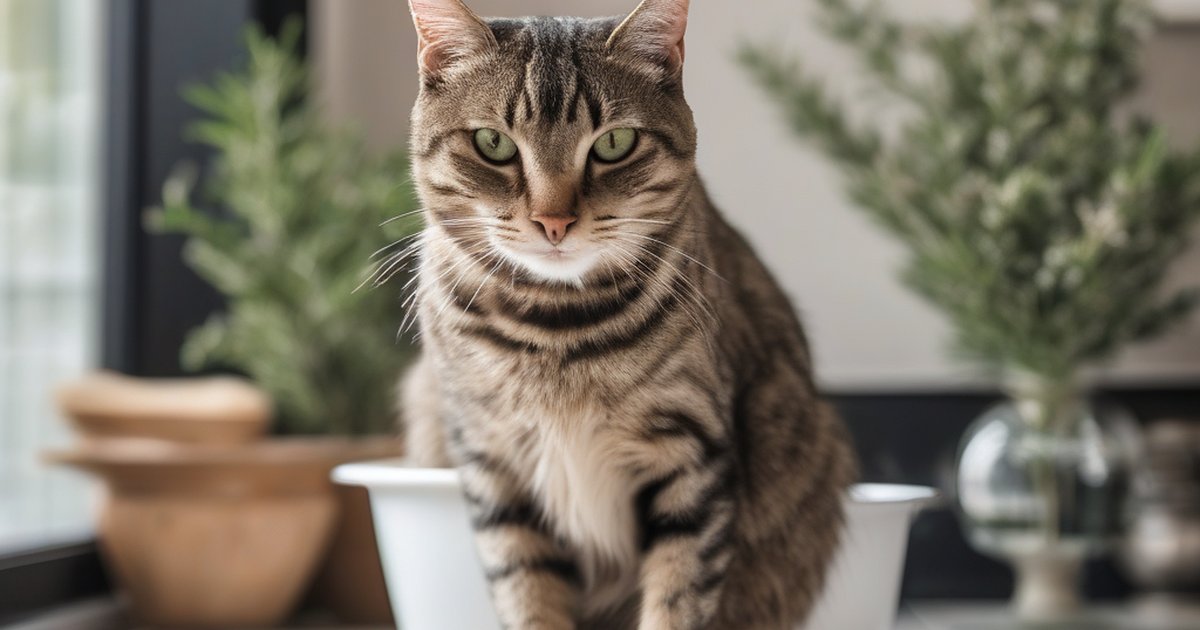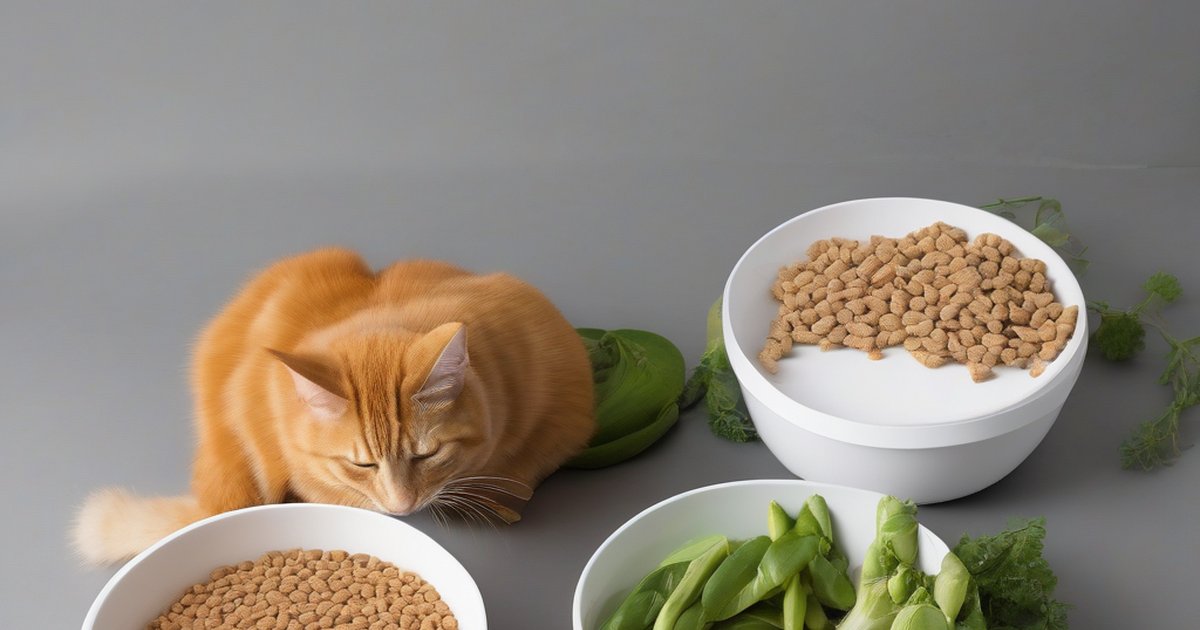Introduction
Every cat owner knows the challenge: maintaining a fresh-smelling home despite having a litterbox. While regular cleaning helps, the persistent odors from ammonia and hydrogen sulfide can make even the most diligent pet parent’s house smell unpleasant. A promising new study offers hope through an unexpected solution—rosemary extract supplements that work from the inside out to dramatically reduce these offensive odors.
Researchers discovered that adding rosemary extract to cats’ diets can cut ammonia emissions by nearly half and significantly reduce hydrogen sulfide levels, potentially transforming the daily experience of cat ownership.
Research Background
Litterbox odor primarily stems from compounds produced when gut bacteria break down proteins and other nutrients in cat waste. Previous research has explored various external solutions—from specialized litters to air purifiers—but few studies have investigated whether dietary interventions could address the problem at its source.
This study represents a novel approach: using natural plant extracts to modify the gut microbiome and reduce odor-producing bacterial activity. The researchers hypothesized that rosemary’s antimicrobial and antioxidant properties might selectively promote beneficial bacteria while suppressing those responsible for creating offensive smells.
Study Details
Study Design: Controlled feeding trial over multiple weeks
Participants: 9 healthy adult cats from a research facility
Methods:
- Cats received their regular diet supplemented with rosemary extract
- Researchers measured exhaled gas concentrations of ammonia and hydrogen sulfide
- Fecal samples were analyzed for bacterial composition changes
- Air quality measurements were taken to quantify odor reduction
- Control measurements were compared against treatment period results
The study used precise analytical instruments to measure even small changes in gas emissions, ensuring accurate quantification of the rosemary extract’s effects.
Key Findings
The results exceeded researchers’ expectations and provide clear evidence of rosemary extract’s effectiveness:
Primary Results
- 47% reduction in ammonia emissions from treated cats
- 42% decrease in hydrogen sulfide levels in exhaled air
- Significant improvement in overall air quality around litterboxes
Secondary Findings
- Increased beneficial bacteria: Higher levels of Bifidobacterium in the gut
- Reduced harmful bacteria: Lower populations of sulfate-reducing bacteria responsible for hydrogen sulfide production
- Improved gut balance: Overall healthier microbiome composition
- No adverse effects: Cats showed no negative reactions to the rosemary supplementation
Implications for Pet Owners
This research offers cat families a natural, science-backed approach to managing one of pet ownership’s most persistent challenges:
What This Means for You
- Natural solution: Rosemary extract provides an alternative to harsh chemical deodorizers
- Works at the source: Rather than masking odors, it reduces their production
- Dual benefits: Improves both air quality and gut health
- Simple implementation: Can be added to regular diet with veterinary guidance
Many cat owners are now looking for natural cat supplements containing rosemary to help address litterbox odor concerns naturally.
How Rosemary Extract Works
The mechanism behind rosemary’s effectiveness involves several pathways:
- Antimicrobial activity: Natural compounds in rosemary selectively target odor-producing bacteria
- Antioxidant effects: Reduces inflammation and promotes healthier gut environment
- Microbiome modulation: Encourages growth of beneficial bacteria while suppressing harmful species
- Metabolic changes: Alters how proteins are processed, reducing odor compound formation
For cat owners interested in supporting their pet’s digestive health alongside rosemary supplementation, high-quality natural cat foods can provide the nutritional foundation for optimal gut health.
When to Consult Your Veterinarian
Before adding rosemary supplements to your cat’s diet, discuss this option with your veterinarian, especially if:
- Your cat has existing digestive issues or food sensitivities
- You’re considering changing multiple aspects of your cat’s diet simultaneously
- Your cat takes medications that might interact with herbal supplements
- You want guidance on appropriate dosing and product selection
Study Limitations
While promising, this research has several constraints to consider:
- Small sample size: Only 9 cats participated, limiting generalizability
- Controlled environment: Results from a research facility may differ from home settings
- Short-term study: Long-term effects and optimal dosing schedules need further investigation
- Individual variation: Some cats may respond differently based on their unique gut microbiomes
Bottom Line
This study provides compelling evidence that rosemary extract can significantly reduce litterbox odors by improving cats’ gut health. The nearly 50% reduction in ammonia emissions and 42% decrease in hydrogen sulfide represent substantial improvements that could meaningfully enhance quality of life for both cats and their families.
The key insight: addressing litterbox odor through dietary intervention may be more effective than external solutions alone. By promoting beneficial gut bacteria and reducing odor-producing species, rosemary extract offers a natural approach that works from within.
For cat owners seeking to minimize litterbox odors, discussing rosemary supplementation with a veterinarian could be a valuable addition to regular cleaning routines and high-quality litter choices.
Recommended Products
Based on the research findings discussed in this article, we’ve carefully selected these top-rated products to help you implement the study’s recommendations effectively. These products are chosen for their quality, customer satisfaction, and alignment with the scientific evidence presented.
Cat Multivitamin Crunchy & Creamy Chews
Affiliate Disclosure
Important Disclosure: This article contains affiliate links to products on Amazon and other retailers. When you click these links and make a purchase, Pet Science Daily may earn a commission at no additional cost to you. This helps support our mission of providing evidence-based pet care information.
Our Commitment: We only recommend products that we believe will genuinely benefit your pet’s health and wellbeing based on the research discussed in this article. All product recommendations are made independently and are not influenced by potential affiliate commissions. The scientific integrity of our content is never compromised by commercial relationships.
Amazon Associate Program: As an Amazon Associate, Pet Science Daily earns from qualifying purchases. This relationship does not affect our editorial independence or the accuracy of our scientific reporting.
This article summarizes peer-reviewed research for educational purposes. Always consult with your veterinarian for personalized advice about your pet’s health and nutrition.

